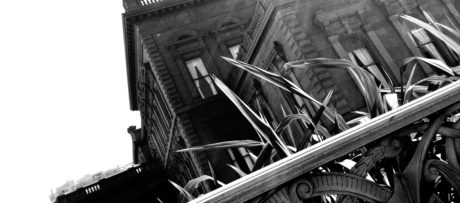Today’s blog was written by Chris Cook, student-at-law at de VRIES LITIGATION LLP.
Examinations for discovery are a key step in the civil litigation process. By allowing parties to ask questions of the opposing party and witnesses before trial, the parties are able to gain a better understanding of relevant facts and documents. After examinations take place, the parties can better assess the strengths and weaknesses of their case and refine their strategy for trial.
Who May Be Examined?
The Ontario Rules of Civil Procedure prescribe who may or may not be examined before trial. Under sub-rule 31.03(1), parties are automatically entitled to conduct at least one examination of the other parties who are “adverse in interest.” For instance, plaintiffs can always examine defendants, and vice-versa. However, under sub-rule 31.10(1), an examining party must obtain leave of the court in order to examine a non-party. To obtain leave, the examining party must establish that it is reasonable to believe that the non-party has “information relevant to a material issue.” For example, the plaintiff may be granted permission to examine the defendant’s former accountant where there is reason to believe that doing so will lead to the disclosure of relevant financial information.
Can Experts Be Examined?
There are limits to when a court will grant leave to examine a non-party. Sub-rule 31.10(1) prohibits a court from granting leave to a party to examine “an expert engaged by or on behalf of a party in preparation for contemplated or pending litigation.” As explained by Associate Judge MacLeod in Andersen v. St. Jude Medical Inc., the Ontario Rules of Civil Procedure do not allow for direct discovery of an expert witness. Consequently, the only time when questions may be put directly to an expert witness (at least with respect to their expert opinion) is when that expert witness is on the stand during trial.
There is an important caveat to the aforementioned prohibition on the pretrial examination of expert witnesses. In unusual situations, a non-party may be classified simultaneously as an expert witness and as a fact witness. When this happens, a court may grant leave to conduct a limited pretrial examination of the non-party, but only with respect to matters touching on the non-party’s personal experiences. Questions relating to that witness’ opinions, which the witness may be expected to give as an expert at trial, are still categorically prohibited.
This caveat was explored by Associate Judge Beaudoin in Cameron v Louden, [1998] OJ No 1879, 1998 CarswellOnt 1864, (ONCJ (Gen Div)). In Cameron, the plaintiff brought a medical malpractice action against her family doctor and specialists after suffering a stroke. The plaintiff intended to call Dr. Nelson, a qualified neurologist, to provide an expert opinion on her condition at trial. Dr. Nelson also happened to be the presiding doctor who treated the plaintiff while she recovered in hospital.
The defendant physicians brought a motion for leave to examine Dr. Nelson. Associate Judge Beaudoin explained that, under rule 31.10(1), the defendants were prohibited from examining Dr. Nelson in respect of any opinions that he may be expected to give as an expert at trial. However, it would not be improper for the defendants to ask Dr. Nelson about such matters as the plaintiff’s stroke recovery and post-stroke treatment plan. Accordingly, Associate Judge Beaudoin granted leave for the defendants’ counsel to examine Dr. Nelson under oath—but only with respect to his prior treatment of the plaintiff.
How is the Expert’s Opinion Known?
If parties are not able to examine expert witnesses prior to trial, how do you avoid trial by ambush? The answer is that experts prepare written reports summarizing their opinions. Those written reports are available to the parties in advance of the trial, allowing the parties time to prepare:
– If a party intends to call an expert witness at trial, that party must provide all other parties to the action a copy of the expert’s report not less than 90 days prior to trial (see sub-rule 53.03(1)). Any responding expert reports must be shared with all parties not less than 60 days prior to the trial pursuant to sub-rule 53.03(2).
– In addition, during the examination of an opposing party, the examining party may ask for disclosure of all findings, opinions, and conclusions of an expert engaged by the party being examined that are relevant to the matter in issue in the action (see sub-rule 31.06(3)).
– Lastly, if the expert was appointed by a judge, the expert is required to provide all parties with a copy of her report prior to trial pursuant to sub-rules 52.03(7) and (8).

